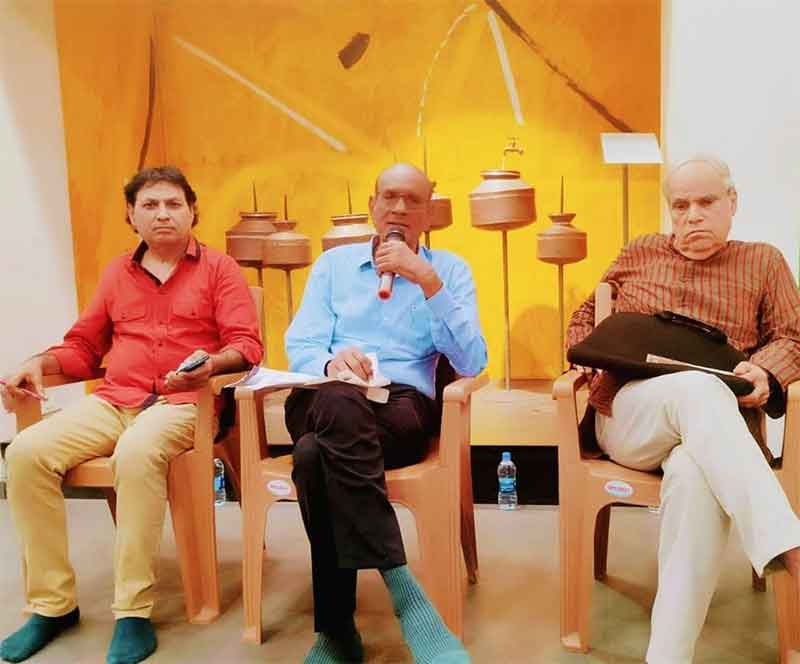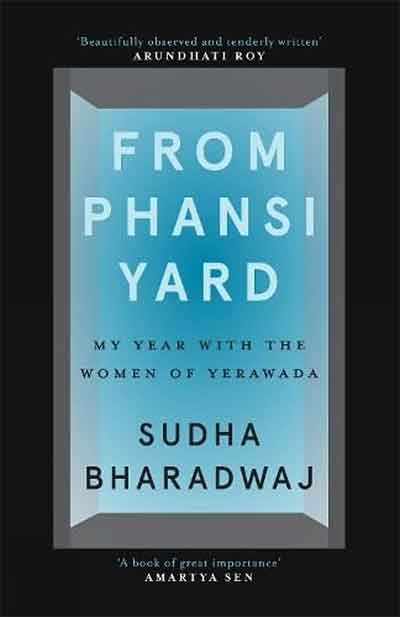
Thoroughly enjoyed the play Karl Marx in Kalbadevi at a new theatre Veda Kunba in Andheri last evening. A rare combination of an intelligent look at history and the present and done in a most entertaining way. The credit goes mainly to the solo performer Satchit Puranik who has both the political understanding of the past and the present and acting skills.
It takes barbs at the current political establishment and in a subtle, intelligent way drawing on points like the common name Shah of the director Manoj Shah and the BJP boss Shah.
The play, an adaptation of the famous historian Zinn’s play, by Uttam Gada was surprisingly a hit in Gujarati in 2013 and is popular in the current Hinglish version.
The next show is this Sunday at G 5 A theatre in Mahalaxmi.
I had missed seeing it all these days and at last could make it. Marx, whether one likes him or not is a great intellectual force, an inspiration for countless people the world over.
A great advantage of doing a version in India is the great similarity in some ways between Marx and Gandhi which the play invokes quite often.
We need to integrate the teachings of the two greats as also Dr Ambedkar .
There is some solid black comedy in the production including the juxtaposing of lunch break for some people and lynch break for some.
The play also does well to remove any misunderstanding of Marx’s famous statement about religion being the opium of the masses. It gives the fuller version to show that he meant this in a wider context — “Religion is the sigh of the oppressed creature, the heart of a heartless world, and the soul of soulless conditions. It is the opium of the people. So the view of religion is not entirely negative though Marx seriously questioned god and religion.
The audience last evening did not seem too aware of Marx or Marxism considering the response to questions posed by the actor from the stage.
There are some interesting , humours bits, several in fact, like the wrapping of Marx’s classic Capital in a saffron coloured cloth to make it look quite non-subversive.
The play also brings out the human, personal life of his family, steeped in poverty for many years, leading to the death of infants, and then there is the devotion of wife Jenny and the revolutionary fervour of his teen age daughter Eleanor.
Karl Marx arrives in present day Kalbadevi, Mumbai, India, more than a century after his death, with the intention of clearing his name of all false allegations against him as a ‘Marxist.’ His observation on the politics, population and prevalent situation in India leave him flustered, reminiscing of Gandhi while he takes us through his life in SoHo with his wife Jenny and his children. the ones who survived and those who didn’t. He insists that he isn’t here to entertain you, and yet he uses all tropes to keep you listening. Entertaining, informative, hard hitting. This performance will comfort the disturbed and disturb the ones safely ensconced in their comfort zone.
Now this is about the American version of the play. Taking his inspiration from Karl Marx’s stay in London’s Soho district after his exile from the Continent, Zinn’s (A People’s History of the United States) one-man play reads like a first-person memoir narrated by a distinctive voice. Laid out on the page as seamless monologue, it envisions Marx in the Soho district of New York in the present, where his mind reels at the same capitalist injustices that boggled him 150 years ago, as an observer has pointed out. The wizened and ailing Marx discourses on the economic state of the modern-day U.S., heatedly decrying the vast disparity between rich and poor and the corrupt, systematic funneling of the wealth that workers earn into the hands of capitalists. Through cascading recollections, we learn of Marx’s devoted marriage, his love for his children and his stormy debates with Mikhail Bakunin, a fellow radical whose concept of a revolution of the spleen rather than the intellect makes Marx seem cold by comparison. These nuggets of personal information yield warmth and mettle where the dialectical prose gets heavy-handed. Often, the doctrines espoused threaten to overwhelm Zinn’s expressed mission to expose Marx’s human side. Zinn is, after all, reissuing Marx’s socialist critique to apply to modern America and, along the way, revising Marxist doctrine by imagining the theorist himself rethinking some of his more off-the-mark notions. Most often it is Marx’s critical wife, Jenny, and brilliant daughter Eleanor who take him to task when he fumbles. With Zinn’s hefty prologue and scholarly but pointed reading list, the text is a cleverly imagined call to reconsider socialist theory as a valid philosophy in these times. Zinn’s point is well made; his passion for history melds with his political vigor to make this a memorable effort and a lucid primer for readers desiring a succinct, dramatized review of Marxism.
Vidyadhar Date is a senior journalist and author of a book Traffic in the era of climate change
















































